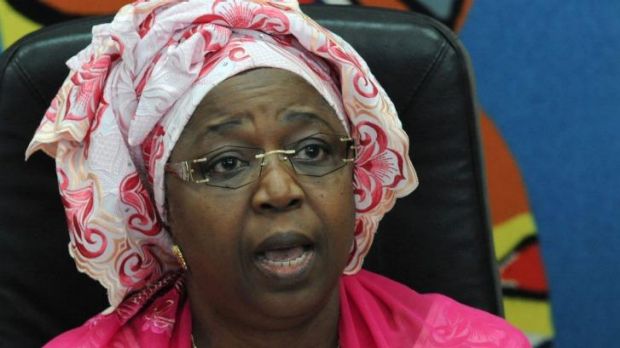London: As the Ebola outbreak spread to a fifth African country on Friday, a treatment for the Ebola virus may have been found, as scientists reported that a drug cured 100 per cent of monkeys with the disease.
The experimental drug ZMapp is being used to treat infected patients, including William Pooley, the British nurse being cared for at the Royal Free Hospital in London after contracting the disease in Sierra Leone.
 Health Minister Awa Marie Coll-Seck gives a press conference in Dakar to confirm the first case of Ebola in Senegal. Photo: AFP
Health Minister Awa Marie Coll-Seck gives a press conference in Dakar to confirm the first case of Ebola in Senegal. Photo: AFP
But health experts were unsure how effective the treatment was because no trials on humans have been done.
Now a study has found that 18 rhesus monkeys infected with the disease made a complete recovery after being given ZMapp.
Three animals that were untreated became seriously ill and died.
News of the development came as Senegal confirmed its first case of Ebola. It is the fifth country in West Africa to be affected by the deadly virus that has killed more than 1500 people.
Senegal’s Health Minister, Awa Marie Coll-Seck, said the Ebola patient discovered there – a Guinean national who travelled to Senegal – had been put in isolation.
As the outbreak worsened in West Africa, Senegal had taken aggressive measures to prevent the virus from spreading into the country. Last week, Senegal closed its borders with neighbouring Guinea, preventing flights headed to Guinea, Sierra Leone or Liberia from touching down in Senegal, a major travel hub for the region.
Experts in London said the results of the experimental drug trial were “extremely encouraging” and “better than expected”, while the scientist who discovered Ebola in 1976 called for clinical trials to begin.
“This well-designed trial in non-human primates provides the most convincing evidence to date that ZMapp may be an effective treatment of Ebola infection in humans,” said Professor Peter Piot, of the London School of Hygiene & Tropical Medicine. “It is now critical that human trials start as soon as possible.”
ZMapp is a blend of three laboratory-made antibodies that neutralise the virus.
Two US doctors infected in Liberia recovered after taking the drug. But it is not known whether they were saved by the drug or just lucky.
About 45 per cent of those infected in the current outbreak have survived without treatment.
At least two patients treated with ZMapp have died, possibly because help got to them too late.
The new research was published on the website of the journal Nature.
The World Health Organisation has warned that the Ebola outbreak in West Africa could eventually kill more than 20,000 people.
Latest figures show 1552 deaths from the 3069 cases reported so far.
There is no approved vaccine.
The treated monkeys were exposed to a lethal level of the virus before receiving three doses of ZMapp, three, four and five days after infection.
Three weeks after they were infected, no trace of the virus could be detected in the animals’ blood. The untreated monkeys all died by day eight after infection.
Telegraph, London; AAP
